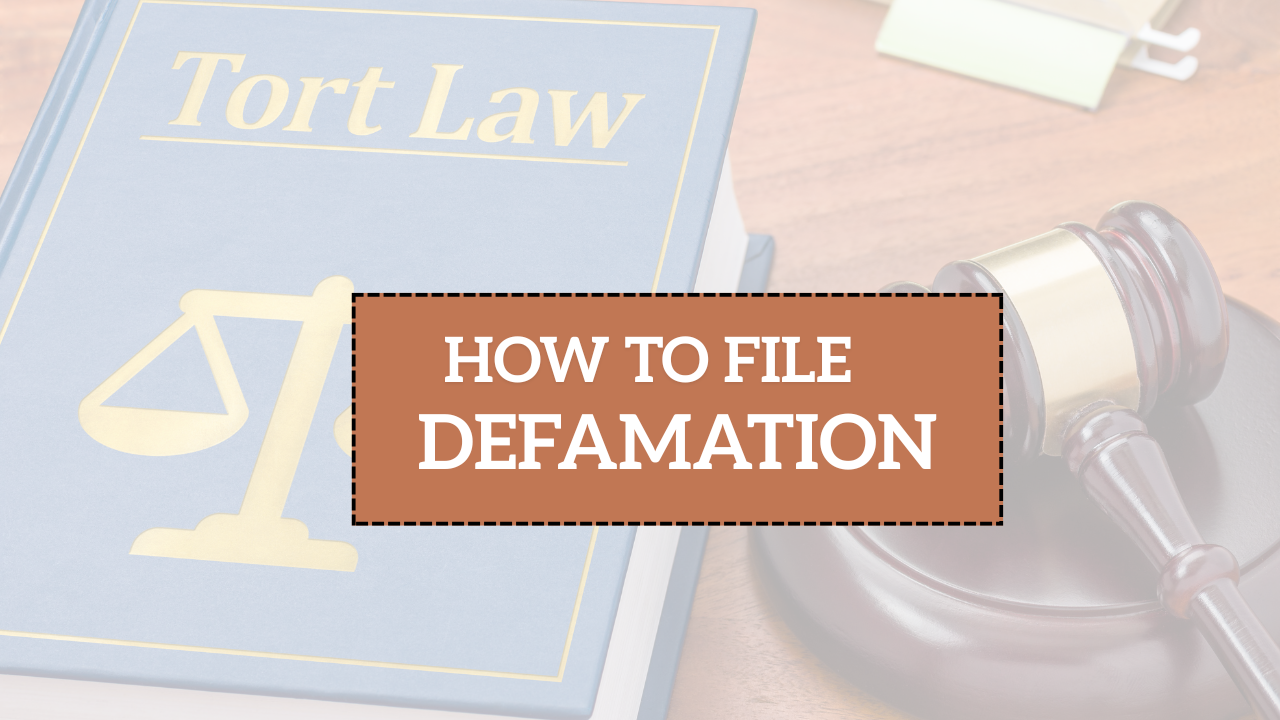In today’s age of social media and viral messaging, reputation can be damaged in seconds. Whether it’s a false post on Facebook, a misleading article, or a baseless accusation in public, defamation can have serious consequences.
If your reputation has been harmed, Indian law gives you the right to file a defamation case. This article will help you understand what defamation means, the types of defamation under Indian law, and how to take legal action to protect your name.
What Is Defamation?
Defamation means making a false statement about a person that damages their reputation in the eyes of others.
Under Indian law, defamation can be:
- Civil Defamation – Where the person sues for monetary compensation
- Criminal Defamation – Where the offender is punished with imprisonment or fine
Legal Provisions for Defamation in India
1. Civil Defamation
- Based on law of torts (civil wrongs)
- No statute specifically defines it
- Remedy: Monetary compensation through a civil suit
2. Criminal Defamation
- Defined under Sections 499 and 500 of the Indian Penal Code (IPC)
Section 499 IPC – Defines what constitutes defamation
Section 500 IPC – Prescribes punishment: Up to 2 years of imprisonment, or fine, or both
Key Elements of Defamation
To prove defamation, the following elements must be present:
- A false statement was made
- The statement referred to the plaintiff (the victim)
- It was published or communicated to someone other than the plaintiff
- It damaged the plaintiff’s reputation
Types of Defamation
A) Libel
- Written or published form of defamation (e.g., newspapers, websites, social media)
B) Slander
- Spoken or verbal defamation (e.g., speeches, interviews, private conversations)
Both forms are treated as defamation under Indian law, but libel tends to carry stronger legal weight as it leaves written proof.
How to File a Defamation Case in India (Step-by-Step)
Step 1: Collect Evidence
- Save all documents, emails, messages, posts, or media where the defamatory content was shared
- Take screenshots, record URLs, and back up any proof
- Get witness statements if others were present during verbal defamation
Step 2: Consult a Lawyer
- Approach a civil or criminal lawyer with expertise in defamation cases
- They will help determine whether you should file a civil or criminal case
Step 3: Draft and Send a Legal Notice
- A legal notice can be sent to the person or organization responsible for the defamation
- It demands a public apology or withdrawal of the defamatory content within a fixed period (e.g., 7 to 15 days)
Step 4: Filing a Criminal Complaint (If Needed)
- If the notice is ignored, your lawyer can file a criminal complaint under Section 500 IPC in the Magistrate’s Court
- You must submit:
- A written complaint
- Evidence of defamation
- Names and details of witnesses (if any)
The court will review the complaint and issue summons if it finds merit.
Step 5: Filing a Civil Suit (Optional or Parallel)
- If you wish to claim monetary damages, you can also file a civil suit for defamation in the District Court or High Court
- There is no fixed limit on compensation — it depends on the nature and impact of the defamation
Where to File the Case?
- Criminal Case: Magistrate Court where the offence occurred or where the complainant resides
- Civil Case: District Court or High Court based on jurisdiction and claim amount
What Are the Possible Defences Against Defamation?
The accused may try to defend themselves using these legal grounds:
- The statement is true and for the public good
- The statement was made in good faith
- The statement was an opinion, not a fact
- The statement was made in privileged communication (e.g., court proceedings or Parliament)
What Is the Time Limit to File a Defamation Case?
- Criminal Case: Within 3 years from the date of the offence
- Civil Case: Ideally within 1 to 3 years, depending on the court’s jurisdiction and nature of the claim
Common Examples of Defamation
- False accusations posted on social media
- Negative news reports without verification
- Rumors or character assassination in public
- Online reviews with malicious intent
- Fake WhatsApp forwards about a business or person
Final Thoughts
Your reputation is a valuable asset, and Indian law strongly protects it. If someone tarnishes your name with false allegations, rumors, or posts, you have the full right to take legal action through a defamation case.
Whether you’re an individual, business owner, or public figure — don’t ignore defamation. Take a firm stand and use the law to restore your dignity.

